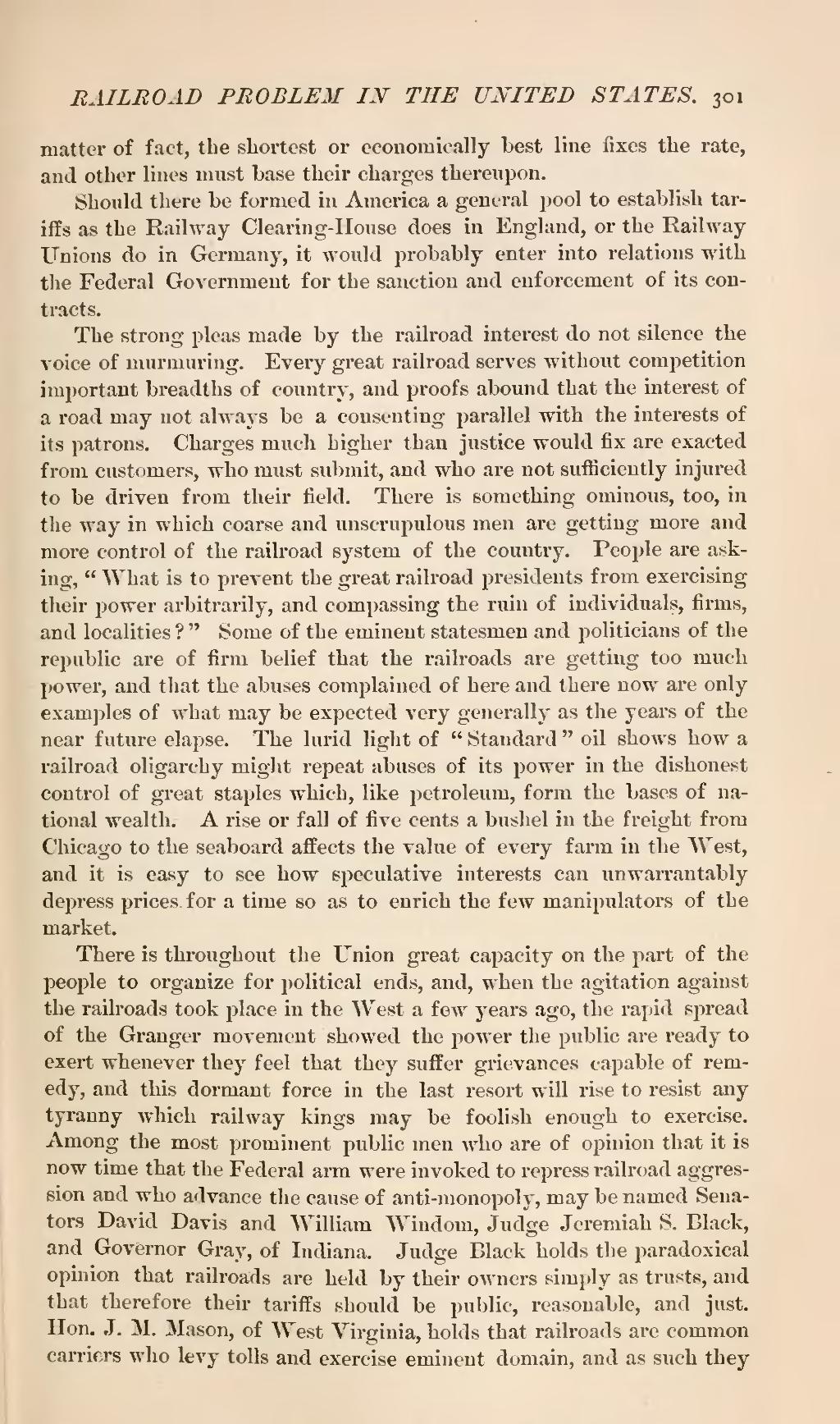matter of fact, the shortest or economically best line fixes the rate, and other lines must base their charges thereupon.
Should there be formed in America a general pool to establish tariffs as the Railway Clearing-House does in England, or the Railway Unions do in Germany, it would probably enter into relations with the Federal Government for the sanction and enforcement of its contracts.
The strong pleas made by the railroad interest do not silence the voice of murmuring. Every great railroad serves without competition important breadths of country, and proofs abound that the interest of a road may not always be a consenting parallel with the interests of its patrons. Charges much higher than justice would fix are exacted from customers, who must submit, and who are not sufficiently injured to be driven from their field. There is something ominous, too, in the way in which coarse and unscrupulous men are getting more and more control of the railroad system of the country. People are asking, "What is to prevent the great railroad presidents from exercising their power arbitrarily, and compassing the ruin of individuals, firms, and localities?" Some of the eminent statesmen and politicians of the republic are of firm belief that the railroads are getting too much power, and that the abuses complained of here and there now are only examples of what may be expected very generally as the years of the near future elapse. The lurid light of "Standard" oil shows how a railroad oligarchy might repeat abuses of its power in the dishonest control of great staples which, like petroleum, form the bases of national wealth. A rise or fall of five cents a bushel in the freight from Chicago to the seaboard affects the value of every farm in the West, and it is easy to see how speculative interests can unwarrantably depress prices, for a time so as to enrich the few manipulators of the market.
There is throughout the Union great capacity on the part of the people to organize for political ends, and, when the agitation against the railroads took place in the West a few years ago, the rapid spread of the Granger movement showed the power the public are ready to exert whenever they feel that they suffer grievances capable of remedy, and this dormant force in the last resort will rise to resist any tyranny which railway kings may be foolish enough to exercise. Among the most prominent public men who are of opinion that it is now time that the Federal arm were invoked to repress railroad aggression and who advance the cause of anti-monopoly, may be named Senators David Davis and William Windom, Judge Jeremiah S. Black, and Governor Gray, of Indiana. Judge Black holds the paradoxical opinion that railroads are held by their owners simply as trusts, and that therefore their tariffs should be public, reasonable, and just. Hon. J. M. Mason, of West Virginia, holds that railroads are common carriers who levy tolls and exercise eminent domain, and as such they
